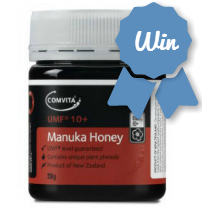Save More by Collecting Your Own Rainwater
Water is a very precious commodity, as precious as the air we breathe yet people tend to take it for granted as its supply is quite abundant in our today world. What we did not notice is, our water is slowly being contaminated and the term “fresh water” is becoming rarer to the ears. If we stop for a while and think about it, most of the water that we’re using for our daily consumption is coming from treated water as it’s not safe anymore to simply drink from its natural source. All these waters cost us quite a fortune. Do you know how much do you have to pay for a liter of drinking water? That’s not counting the water you’re using for gardening and the likes.
If you’re concerned of the impact on both your purse and the environment, the most affordable and convenient way is water containment or better known as rainwater collection. Rainwater collection will also help you out when there is a water emergency such as drought or water ration. To ensure the collected rainwater is safe for your own consumption, you will have to ensure your roof is free of hazardous material and is not coated in any substances that can contaminate the water. The same goes to the gutters and pipes which will carry the rainwater to a tank for storage. It will not serve the purpose if the collected water has been polluted before it even reached the tank. Bear in mind when you decided to choose a tank for storage, you have taken into consideration the surrounding area i.e. whether there will be animals and kids to whom the tank might pose a threat of drowning; and the climate to avoid the buildup of algae in the tank. Ensure your tank is tightly covered for the cleanliness of the water stored.
The amount of rainwater that can be collected depends on your country and its weather. Tropical countries enjoy bountiful rain throughout the years while others like the deserts might find the arrival of the rainy season a heaven-sent. Where ever your location might be, rainwater proves the most convenient form of water saving that is easy on your pocket. You can use it for the water sprinkler in the garden or you can channel it back into your house for your shower or bath. While the water is considered safe for these types of activities, be mindful that it is not suitable for drinking as its properties are unknown. Keep yourself safe by sticking to bottled or boiled water for drinking.
Additional Reading:
http://www.articlesbase.com/environment-articles/ecological-ways-of-reducing-water-wastage-398600.html

